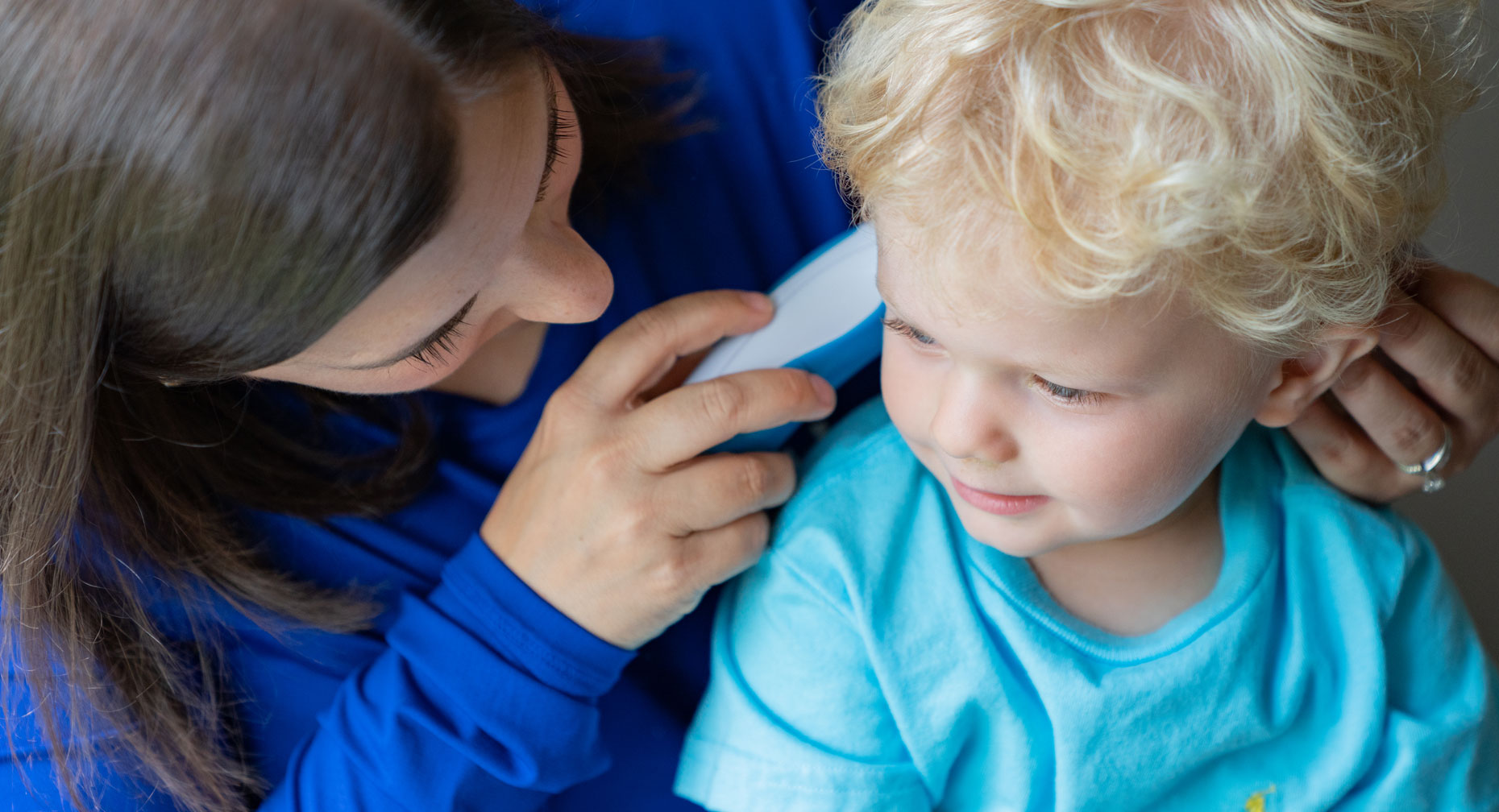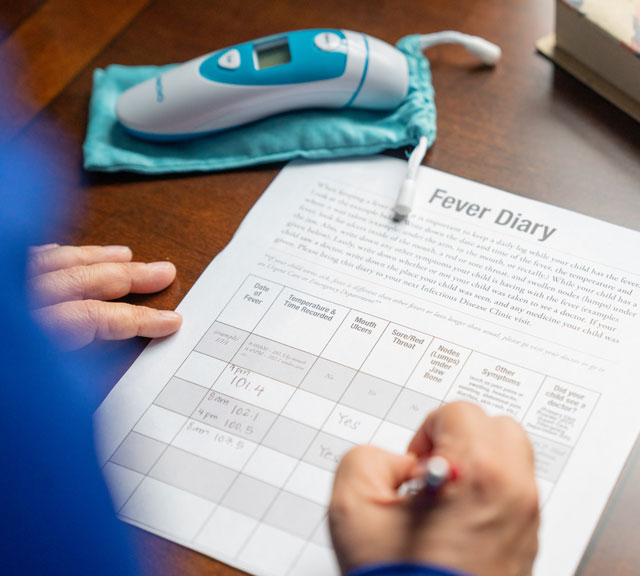Four Fever Fears and How to Handle Them

Find Your Perfect Match
Answer a few questions and we'll provide you with a list of primary care providers that best fit your needs.
Fevers can come and go in 24 hours, or they can hang around for days on end. So how do you know when they’re minor — or when a fever means more?
First, a few basics. A fever is when your body temperature is higher than normal. It isn’t an illness. Rather, it’s a symptom of an illness. Fever is the body’s way of fighting infection. So a fever is actually doing your body a favor by fighting the bacteria or virus that is making you sick.
Normal body temperature varies from person to person, and changes based on what you eat and drink and your level of activity. For most people, a normal body temperature is right around 98.6 F (37 C).
Below are common fears parents have about fevers, and what you should know to best take care of your little ones when they’re sick.
Fever is the body’s way of fighting infection.
1. My child’s fever is really high.
Many parents focus on the number of their child’s temperature. But it’s often how long the fever has been around, plus your child’s other symptoms that help determine the cause of your child’s illness.
However, there are some important times when a high fever demands immediate attention:
- Call your doctor or health care provider right away if:
- Your infant younger than 3 months old has a temperature of 100.4°F (38.0°C) or higher.
- Your child of any age repeatedly has a fever over 104°F (40°C).
- It’s not necessary to give your child fever-reducing medication if they are otherwise comfortable. But it’s fine to give ibuprofen or acetaminophen to bring a fever down if your child feels and looks really sick. Make sure you know the right dose to give based on your child’s weight. Never give aspirin to children under age 18 due to the risk of Reye syndrome.
2. My child’s had a fever for too long.

Another common question is about the length of time fever hangs around. For doctors, that’s often a telltale sign of how serious an illness might be. Follow these guidelines:
- Call your doctor or health care provider if:
- Your child under age 2 has had a fever for more than two days.
- Your child age 2 or older has had a fever more than three days.
- Be ready to talk about any other symptoms your child has, such as cough, runny nose, sore throat, and how long those symptoms have been around.
- Also know the time you last took your child’s temperature, what the temperature was, and how you took it (by armpit/axillary, mouth, ear, forehead or rectum/bottom).
3. The fever means something really serious is going on with my child.
A fever may show up when your child has a virus or a bacterial illness. Often fevers come with respiratory illnesses including croup, pneumonia and ear infections. The fever goes away as the illness runs its course or, for a bacterial infection, has been treated with antibiotics.
Other times, fevers can come and go over weeks at a time. It’s important not to jump to conclusions when this happens. But it’s equally important to recognize repeat fevers in your child, as they can sometimes indicate a more serious condition, including an autoimmune disease or cancer.
If your child has fever that comes and goes, talk to your doctor about it. You’ll likely be asked to keep track of the fevers, the time of day they occur, and how long they last to help identify trends.
4. My child might get dehydrated.
It’s true that people can get dehydrated when they have a fever. This is because fever causes the body to lose fluids more quickly.
To combat dehydration:
- Make sure your child gets plenty of fluids. For older kids, try water, sports drinks, low-sodium broths and soups, ice chips, frozen juice bars. Breast milk and formula are fine for babies.
- Watch for signs of dehydration including dry mouth, dry skin, dry or cracked lips, severe thirst, dark yellow urine, not urinating frequently, dull or sunken eyes, crying without tears, fewer wet diapers. Call your health care provider if you notice these symptoms in your child.
When it comes to fevers, above all, rely on how well you know your child. If your child looks sick, feels sick, and you are concerned, call your doctor.
Find Your Perfect Match
Answer a few questions and we'll provide you with a list of primary care providers that best fit your needs.
Source: American Academy of Pediatrics; National Institutes of Health




